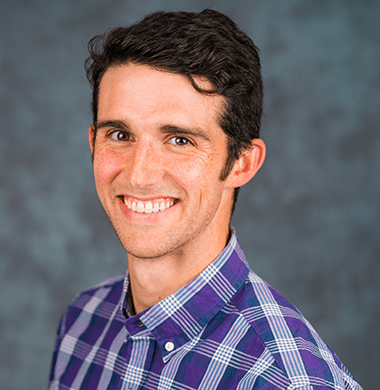By Michael Moses, Director, Advocacy & Programs, Global Integrity, November 1, 2016
How might international actors, from donors to INGOs, do a better job of supporting the impact and effectiveness of their in-country partners? Might a different approach to designing and implementing projects – one that aims to incorporate structured cycles of trying, learning, and adapting throughout a given project cycle, what we call adaptive learning – help reformers make progress towards more open governance? And if so, how? At Global Integrity, given our focus on open governance and adaptive learning, we hear these questions a lot. In fact, we ask them pretty frequently ourselves. And we’re currently exploring them through our new Learning to Make All Voices Count project.
With support from the Making All Voices Count initiative (MAVC), we’re working with six MAVC grantee organizations from five countries (South Africa, Tanzania, Kenya, the Philippines, and Indonesia) as they engage their governments through the Open Government Partnership (OGP).
The project is motivated by a simple goal: to strengthen the impact and effectiveness of MAVC grantees, while also contributing to learning about how international actors, like MAVC, can more effectively support their in-country colleagues. Our efforts are informed by the fact that open governance reform is political and complex. And as a result, there aren’t blueprint approaches to making progress towards more open governance (see our strategy, or our learning plan, for more). Rather, pro-reform actors, including our MAVC partners, might benefit from a flexible approach to engaging with, navigating, and making incremental progress towards overcoming the knotty challenges presented by their contexts. Our take is that they might benefit from a method by which to learn, and improve, as they go — a method, in other words, like adaptive learning.
One of the ways in which we’re supporting our partners is by designing, convening, and leading a series of reflective learning workshops, the first of which took place on September 27-28, in Nairobi. The workshop was essentially our project kickoff – an opportunity, after months of Skype conversations, phone calls, and emails, to come together with our MAVC partners to explore and concretize the operational implications of practicing adaptive learning in different contexts.
Our specific objectives in Nairobi were twofold:
- First, to help grantees further build out their answers to a few key questions: how did they define their strategies? How could they best monitor the effectiveness of those strategies as they implemented their projects? What questions would they reflect on as they reviewed monitoring data? And significantly, how would they then adapt their plans, make crucial course corrections, and track those course corrections, at regular, iterative intervals, moving forward?
- Second, to build the foundations for a learning community, composed of both practitioners and donors, predicated on collaborative, constructive support.
Throughout the course of the workshop, we came to realize that the second goal was more important than the first. Indeed, without first creating the foundations for frank peer exchange, mutual commitment, and partnership, making substantive progress on the mechanics of adaptive learning wouldn’t have been possible. This meant that we adapted our initial program design, and dedicated more time to constructing a shared definition of what it means to learn and adapt. We also devoted more time to strengthening relationships between workshop participants, and to working out how donors and grantees could mutually and productively encourage one another throughout these projects.
Over the course of the two day workshop, some key lessons emerged, including:
- A willingness to share, learn from, and assist other participants, regardless of their particular role (donor, grantee, program staff, etc) is a fundamental aspect of enabling adaptive learning;
- The fact that we’re working with six different grantees in five different countries, all of whom are applying an adaptive learning approach in unique contexts, provides rich opportunities for learning at multiple levels. The comparative insights that emerge from grantees’ unique experiences not only help them learn from one another, and improve their impact, but will also be useful to Global Integrity and MAVC, and the governance sector more generally, as we improve our understanding of how to more effectively support open government reformers in their work.
- Getting donors and grantees on the same page as to the conceptual framework of and motivation for learning by doing, even when that means moving away from more traditional methods project management, including monitoring and evaluation, is key to empowering grantees to really engage in adaptive learning.
We’re excited to take these lessons forward, as a group and individually, in the months to come. Grantees have returned home, and we’re working closely together, along with MAVC country engagement developers, to finalize adaptive learning designs, and begin putting them into practice. We plan to reconvene in early 2017, at which point we’ll share what we’ve learned thus far, troubleshoot challenges we’re facing, and reflect on both the methods and content of emerging learning.
Stay tuned for more blogs on the project, as well as (potentially) for MAVC/Global Integrity sessions on this project at the Open Government Partnership’s Global Summit in Paris, and for grantee profiles that should be going up at the MAVC website in the near future. In the meantime, check out our short film on the project, produced by Lightbox Films (also available at the top of this blog).
And let us know what you think! How do you support open governance in complex environments? How are you innovating and adapting? Do you think the kind of approach we’re supporting in these projects might be useful to you? Or not? We’d love to hear from you.







